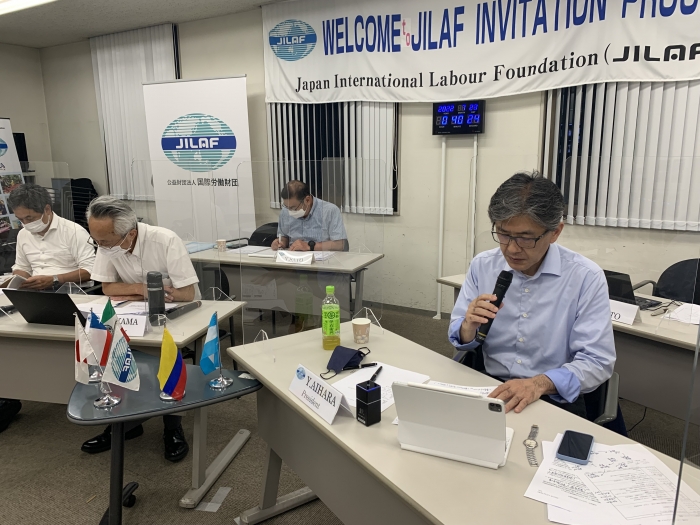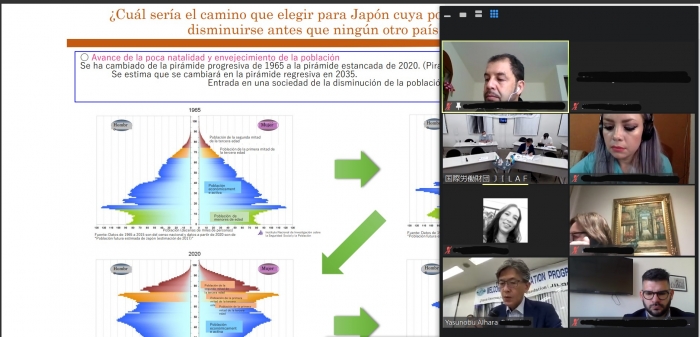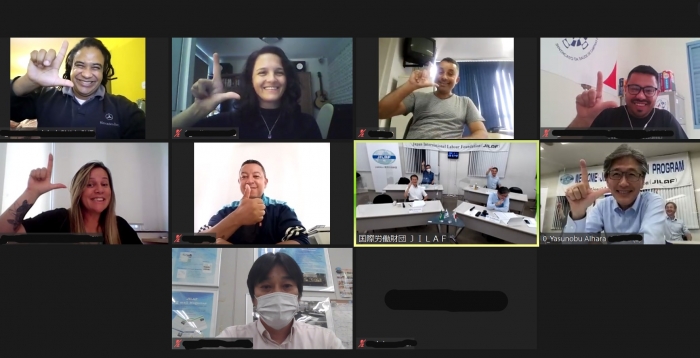Central and South America Team
An online study program was held from July 18 (Monday) to August 5 (Friday).
A total of fourteen participants (of whom eight were women) from five Central and South American countries (Argentina, Colombia, Chile, Mexico and Brazil) completed the entire program from July 18 to July 22 (Spanish-speaking countries) and from August 1 to August 5 (Portuguese-speaking countries).
Due to the restrictions on entry into Japan caused by the spread of COVID-19, JILAF has been implementing its projects through “online programs” via the Internet in place of training programs that invite overseas trainees to Japan.
This time, the online program consisted of five days, with two days spent watching on-demand videos on industrial relations and labour policy, and three days of real-time online sessions where the participants exchanged opinions with JILAF officers, had additional talks about the presentations given, and so forth.
During the online exchange of opinions on the fourth day, participants not only heard about each country’s employment situation, but also listened to presentations, then engaged in a lively discussion about the kind of initiatives that should be developed in their countries in the future.
The participants mainly proposed the following action plans.
(1) Although the labour movement and industrial relations in Japan and Argentina are different, the mechanism of Japan’s labour-management consultation system is useful, so we would like to consider whether it can be adopted in our own organizations. (Argentina)
(2) We would like to make proposals at the Meeting of the Central Executive Committee and other such occasions to negotiate for the indefinite employment of regular employees and the protection of the rights of non-regular employees during collective bargaining. (Colombia)
(3) We will share what we have learned in the program within the national center and conduct a comparative analysis of labour movements in Japan and Latin America. (Mexico)
(4) In order to eliminate discrimination against women and other social minority workers, we would like to use platforms such as social media to convey what we have learned from the program within and outside organizations. (Brazil)
List of Cooperating Organizations
| Japanese Trade Union Confederation (JTUC-RENGO) | Labour Standards Bureau of the Ministry of Health, Labour and Welfare | The National Conference of the Association of Small Business Entrepreneurs |
| Tokyo Local of the Japanese Trade Union Confederation (Rengo Tokyo) | The Foundation for Promoting Workers’ Welfare and Mutual Aid Insurance (Zenrosai Kyokai) |
Many thanks to everyone.



